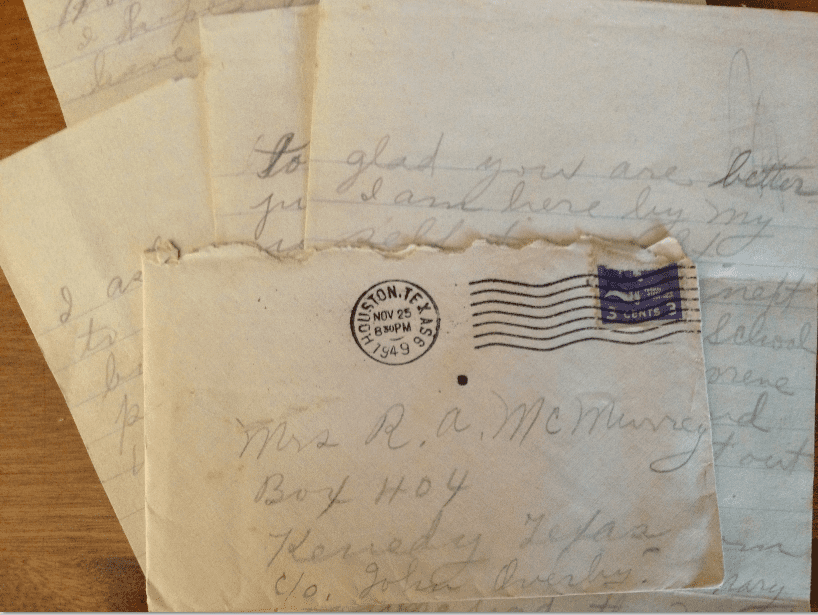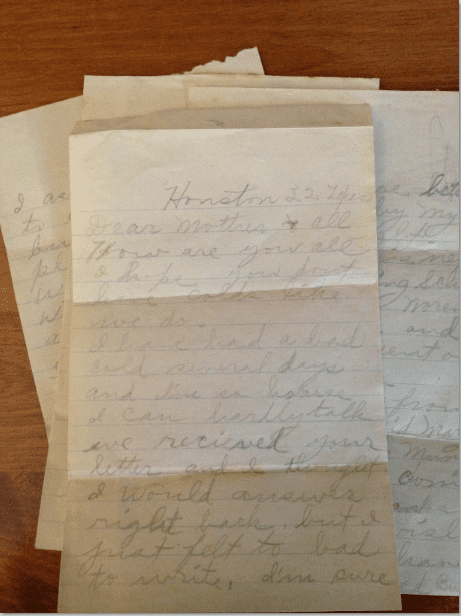Introduction: In this article, Gena Philibert-Ortega shows how your ancestors’ letters can help with your family history research—and how you can find them. Gena is a genealogist and author of the book “From the Family Kitchen.”
Have you ever used a letter in your family history research? Letters from friends and family as well as those from businesses and organizations can provide information for your genealogy that can’t be found in standard genealogical resources.
Letters from Familial Archives
In the introduction to their book Women’s Letters: America from the Revolutionary War to the Present, editors Lisa Grunwald and Stephen J. Adler remark: “Like women talking over the back fence, the telephone, the breakfast plates, or the business lunch, women’s letters rarely just exchange information. Instead they tell stories; they tell secrets…they—usually without meaning to—write history.”[i]

Letters from family and friends can provide wonderful clues for your family history. In the case of my own family history research, a letter held by a distant cousin from my 5th great-grandfather listed the names of his children and their birthdates. He also provided insight into his everyday life as an elderly widower living with one of his daughters.
Letters in Manuscript Collections
While some researchers may be fortunate to have inherited the familial archives, not everyone is lucky enough to have copies of family correspondence. Even if you have no access to the letters penned by your ancestors you may want to search for letters written to and from friends, neighbors and community members where your ancestor lived. These pieces of correspondence, found in manuscript collections, can provide social history information about events that affected your ancestor as well as the possibility of mentioning your family members.

To find a manuscript collection for the place your ancestor lived in, use a website like ArchiveGrid or the National Union Catalog of Manuscript Collections (NUCMC) and search on the name of the place your ancestor was from (for example, city and state), not just the name of your ancestor. Look through these results to find any mention of correspondence for the time and place your ancestor was from. State historical societies are another good place to search for letters.
Letters in Newspapers
There can be other places to find correspondence. Surprisingly, one place to find letters is the newspaper. Remember that a newspaper is the voice of a community and as such all types of news can be found there, including letters. In some cases the letters are intended to be published in the newspaper, as in the case of Letters to the Editor.
In others, the recipient has shared a letter they received that they thought would be of interest to their neighbors. During war time soldiers’ letters home were sometimes shared in the newspaper, as in this feature “Letters from Over There.” These published correspondences can provide you with a glimpse of what life was like for those in your ancestor’s community.
Even children are represented in letters published in newspapers, as in the case of letters to Santa.
Don’t assume that just because you did not inherit your ancestor’s letter correspondence that none exists. Check out archives, libraries and newspapers for more information about your ancestor’s life.
[i] Women’s Letters. America from the Revolutionary War to the Present. Edited by Lisa Grunwald and Stephen J Adler. Page 1. Available on Google Books http://books.google.com/books?id=y8cGGFpBnBEC&lpg=PA415&dq=%22lydia%20E%20Pinkham%22&pg=PP1#v=onepage&q=%22lydia%20E%20Pinkham%22&f=false.
